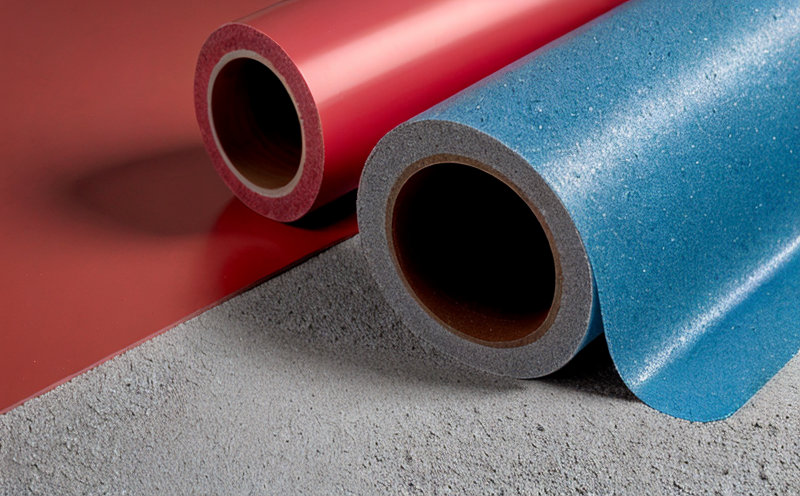FAA FAR 25.869 Fire Protection Testing of Engine Installations
The Federal Aviation Administration (FAA) Far Part 25, Section 25.869 mandates fire protection testing for aircraft engine installations to ensure the safety and reliability of these critical components during emergencies.
Engine installations in aviation are subject to extreme conditions that can lead to potential fires, which may compromise flight safety if not properly managed. The FAA's stringent requirements under FAR 25.869 are designed to address this concern by ensuring materials used in engine installations meet the highest fire resistance standards.
Engine installations typically involve various components including the engine itself, surrounding structures, and associated systems such as fuel lines, ignition systems, and exhaust components. The primary focus of FAR 25.869 is to evaluate the fire resistance of these materials by subjecting them to controlled combustion environments that simulate real-world conditions.
During testing, engine installations are subjected to standardized procedures aimed at assessing their ability to withstand fires without compromising safety or performance. This includes evaluating how quickly a component ignites, its flame spread rate, and the amount of heat it produces under fire exposure. The goal is to ensure that in case of an emergency, the materials used do not contribute to further hazards.
The testing process involves rigorous methodologies that align with international standards such as ASTM E84-21, which provides guidelines for measuring flame spread and smoke development using a standard fire test method. Additionally, EN 13501-1 is another standard often referenced in Europe for similar tests.
For quality managers and compliance officers responsible for ensuring adherence to FAR 25.869, it's crucial to understand the detailed procedures involved in this testing. This includes specimen preparation, which requires precise handling of engine installation components. The specimens must be representative of actual installations and undergo pre-test conditioning if necessary.
Instrumentation plays a pivotal role in these tests, with specialized equipment capable of measuring various parameters including temperature, flame height, and smoke density. Compliance officers and R&D engineers should familiarize themselves with the specific instruments used to ensure accurate test results.
The testing process itself involves multiple stages, from initial setup to final analysis. Each stage is critical in ensuring that the engine installation meets all fire protection requirements specified by FAR 25.869. Compliance officers must closely monitor these processes to ensure no deviations occur.
Once tests are completed, detailed reporting is required to document findings and any discrepancies from standard norms. This documentation serves as a critical reference for future compliance checks and modifications if necessary. Quality managers and R&D engineers play key roles in reviewing and interpreting this data to inform decisions on material selection and design improvements.
In summary, the FAA FAR 25.869 fire protection testing of engine installations is a vital process that ensures aviation safety by rigorously evaluating materials for their fire resistance capabilities. This testing not only adheres to stringent regulatory requirements but also contributes significantly to enhancing overall aircraft performance and reliability.
- Ensures compliance with FAA regulations, safeguarding flight safety during emergencies.
- Evaluates the fire resistance of engine installation materials using standardized procedures.
- Uses controlled combustion environments that simulate real-world conditions for accurate assessments.
- Involves precise specimen preparation and rigorous instrumentation to ensure reliable test results.
- Includes detailed reporting on findings, serving as a critical reference for future compliance checks.
Applied Standards
The testing of engine installations under FAR 25.869 is guided by several key standards that ensure the accuracy and reliability of fire protection assessments. These include:
- FAR 25.869: Mandates fire resistance requirements for aircraft engine installations.
- ASTM E84-21: Provides guidelines for measuring flame spread and smoke development in materials.
- EN 13501-1: European standard for assessing the behavior of products under fire conditions.
These standards provide a framework for testing that is internationally recognized, ensuring consistency and reliability across different aerospace industries. Compliance with these standards demonstrates commitment to safety and quality in aircraft engine installations.
Benefits
- Safety Enhancement: Ensures that materials used in engine installations meet strict fire resistance requirements, reducing the risk of onboard fires during emergencies.
- Regulatory Compliance: Provides assurance that all tests and procedures adhere to FAA regulations, avoiding potential penalties or delays due to non-compliance.
- Enhanced Reliability: Tests help identify any weaknesses in materials early on, allowing for improvements before they impact real-world performance.
- Improved Design: Detailed test results can be used by R&D engineers and quality managers to refine designs, ensuring optimal fire protection without compromising other critical aspects of the engine installation.
Eurolab Advantages
At Eurolab, we offer comprehensive FAA FAR 25.869 fire protection testing services that are tailored to meet the highest standards of safety and compliance in aerospace & aviation testing.
Our team of experts ensures that every aspect of the testing process is conducted meticulously, from initial consultation through final reporting. We use state-of-the-art equipment and adhere strictly to internationally recognized standards such as FAR 25.869, ASTM E84-21, and EN 13501-1.
Our facilities are equipped with the latest technology for specimen preparation, testing procedures, and data analysis. This allows us to provide precise and reliable test results that can be trusted by quality managers, compliance officers, R&D engineers, and procurement teams alike.
We offer a range of services to support your aerospace & aviation needs, including:
- Initial consultation on testing requirements.
- Precision specimen preparation for accurate test results.
- Comprehensive testing procedures aligned with FAA regulations and international standards.
- Detailed reporting that serves as a critical reference for future compliance checks and design modifications.





